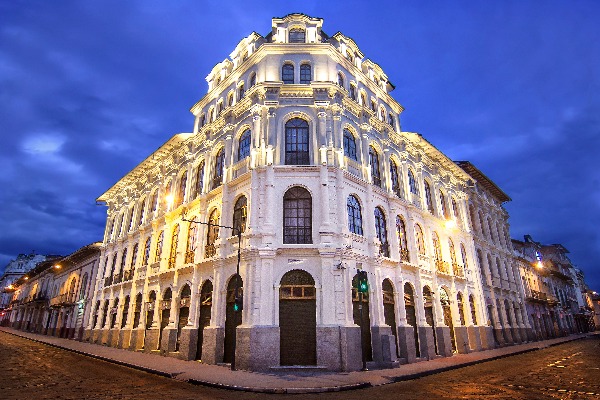End of strike celebrations are underway but many are unhappy with terms of the agreement
Although celebrations of the end of the indigenous strike will continue through the weekend strike leaders and the government understand the agreement signed Thursday afternoon is far from satisfactory.

Protesters celebrated the announcement of the end of the strike Thursday afternoon in Quito.
“On many points, we do not agree with the government,” Conaie President Leonidas Iza said after the agreement had been reached. “But, for the sake of the country we must accept the terms presented to us today. We must continue to talk so we can achieve better results.”
Government Minister Francisco Jiménez admitted he and President Guillermo Lasso were forced to make “painful concessions” to reach an agreement. “We had to compromise and make offers we would have preferred not to,” he said. “On the other hand, this is the nature of negotiation. Both sides must yield from their opening positions.”
Although the agreement was announced just after noon Thursday, it almost fell apart because of disagreement among indigenous leaders and the final document was not official until after 3. Gary Espinoza, President of the National Confederation of Organizations of Indigenous and Blacks, the last to sign, was upset that Iza had not demanded a 40-cent per gallon reduction in gasoline and diesel prices and that there was not a guarantee of amnesty for those arrested during the 18-day strike. Others wanted loan extensions and debt forgiveness for poor families due to Covid-19 pandemic hardship and complained that all of Conaie’s 10 demands had not been officially addressed.

Conaie’s Leonias Iza and Government Minister Francisco Jiménez following the signing of the agreement that ended the strike on Thursday.
In the end, however, all the leaders of the Confederation of Indigenous Nationalities agreed to terms drawn up the Catholic Church negotiation team. “We need peace and we need some time to rest,” Iza said.
In the final agreement, the government agreed to a 15-cent reduction in the price of Extra and Ecopaís gasoline and diesel fuel. The reduction includes the 10-cent reduction Lasso ordered on June 24 plus an additional 5 cents. Extra and Ecopaís will now cost $2.40 a gallon while diesel will be $1.75. The prices will be fixed and subsidized by the government.
The government also agreed to end the emergency declarations for four provinces, including Azuay, announced Wednesday night; to repeal Decree 151, which sought to expand the number of mining concessions; to repeal Decree 95, which aimed to double oil production within five years; to guarantee a 50 percent reduction in the price of urea for fertilizer; to recognize special protection zones in the Amazon region; and to continue talks for targeted fuel price reductions for “critical” economic sectors.

A police officer shakes hands with an idigenous woman in Molleturo Thursday.
Some supporters of Lasso and the government claim that compromises on mining and oil production policy will damage Ecuador’s prospects of attracting foreign investment. “The international business community is watching us closely and this agreement will have a chilling effect for the economy,” said Oswaldo Erazo, executive director of the Chamber of Oil Distributors. “The irony is that investments will produce more employment, which is what both sides say they want, and now there will be less of it.”
Erazo concedes the country needs to restore order. “Yes, we need peace so in the short term we are all happy the strike is over. Maybe, over the next 90 days, we can make some modifications to the plan that will benefit the country.

Heavy equipment began clearing the Cajas highway near Sayasi following the announcement of the end of the strike.
The 90 days is the time period accepted by both sides in which details of the agreement are to be worked out.
Peace in our time
Following announcement of the end of the strike, thousands of protesters began leaving the Casa de la Cultura and Parque Arbolito in Quito, the gathering points for strikers during the past two-and-a-half weeks. As Iza left town, he received a hero’s salute from his followers in south Quito.
Throughout the country, government tractors were busy Thursday afternoon removing roadblocks. In many locations, protesters shook hands with police who, at times, had attempted to dismantle the blockages. West of Cuenca, an estimated 100 trucks, some stranded for more than 10 days, finally began moving through Molleturo in Cajas mountains.
On Thursday night, authorities said that the emergency declaration for Cuenca and Azuay Province had not been officially cancelled — they expect to receive official word Friday — but police were not enforcing it.





















